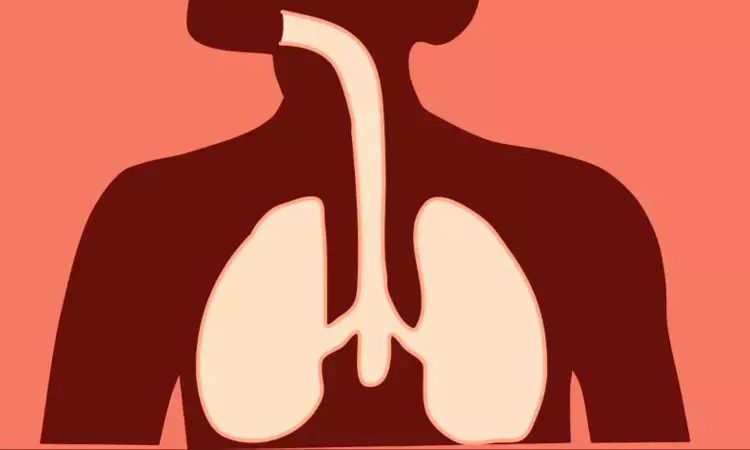- Home
- Medical news & Guidelines
- Anesthesiology
- Cardiology and CTVS
- Critical Care
- Dentistry
- Dermatology
- Diabetes and Endocrinology
- ENT
- Gastroenterology
- Medicine
- Nephrology
- Neurology
- Obstretics-Gynaecology
- Oncology
- Ophthalmology
- Orthopaedics
- Pediatrics-Neonatology
- Psychiatry
- Pulmonology
- Radiology
- Surgery
- Urology
- Laboratory Medicine
- Diet
- Nursing
- Paramedical
- Physiotherapy
- Health news
- Fact Check
- Bone Health Fact Check
- Brain Health Fact Check
- Cancer Related Fact Check
- Child Care Fact Check
- Dental and oral health fact check
- Diabetes and metabolic health fact check
- Diet and Nutrition Fact Check
- Eye and ENT Care Fact Check
- Fitness fact check
- Gut health fact check
- Heart health fact check
- Kidney health fact check
- Medical education fact check
- Men's health fact check
- Respiratory fact check
- Skin and hair care fact check
- Vaccine and Immunization fact check
- Women's health fact check
- AYUSH
- State News
- Andaman and Nicobar Islands
- Andhra Pradesh
- Arunachal Pradesh
- Assam
- Bihar
- Chandigarh
- Chattisgarh
- Dadra and Nagar Haveli
- Daman and Diu
- Delhi
- Goa
- Gujarat
- Haryana
- Himachal Pradesh
- Jammu & Kashmir
- Jharkhand
- Karnataka
- Kerala
- Ladakh
- Lakshadweep
- Madhya Pradesh
- Maharashtra
- Manipur
- Meghalaya
- Mizoram
- Nagaland
- Odisha
- Puducherry
- Punjab
- Rajasthan
- Sikkim
- Tamil Nadu
- Telangana
- Tripura
- Uttar Pradesh
- Uttrakhand
- West Bengal
- Medical Education
- Industry
Inhaled Molgramostim Promising for Autoimmune Pulmonary Alveolar Proteinosis: Phase 3 Trial Shows

USA: A phase 3 study published in the New England Journal of Medicine has highlighted encouraging results for inhaled molgramostim, a recombinant human granulocyte–macrophage colony-stimulating factor (GM-CSF), in patients with autoimmune pulmonary alveolar proteinosis (aPAP). The research was led by Dr. Bruce C. Trapnell from the Translational Pulmonary Science Center, Cincinnati Children’s Hospital Medical Center, and colleagues.
- At 24 weeks, patients treated with molgramostim showed a mean improvement of 9.8 percentage points in DLCO compared with 3.8 points in the placebo group. This translated into a treatment difference of 6 percentage points (95% CI, 2.5–9.4; P<0.001).
- At 48 weeks, the molgramostim group continued to demonstrate benefit with an average DLCO increase of 11.6 percentage points versus 4.7 points in the placebo group (P<0.001).
- Quality of life also improved, with the St. George’s Respiratory Questionnaire total score decreasing by −11.5 points at 24 weeks compared with −4.9 points in the placebo group (P=0.007).
- No significant improvement was seen in the SGRQ activity score at 24 weeks, and therefore, no further statistical testing was conducted for subsequent secondary outcomes.
- Safety outcomes were reassuring, with adverse events and serious adverse events occurring at similar rates in both treatment and placebo arms.
Dr Kamal Kant Kohli-MBBS, DTCD- a chest specialist with more than 30 years of practice and a flair for writing clinical articles, Dr Kamal Kant Kohli joined Medical Dialogues as a Chief Editor of Medical News. Besides writing articles, as an editor, he proofreads and verifies all the medical content published on Medical Dialogues including those coming from journals, studies,medical conferences,guidelines etc. Email: drkohli@medicaldialogues.in. Contact no. 011-43720751


